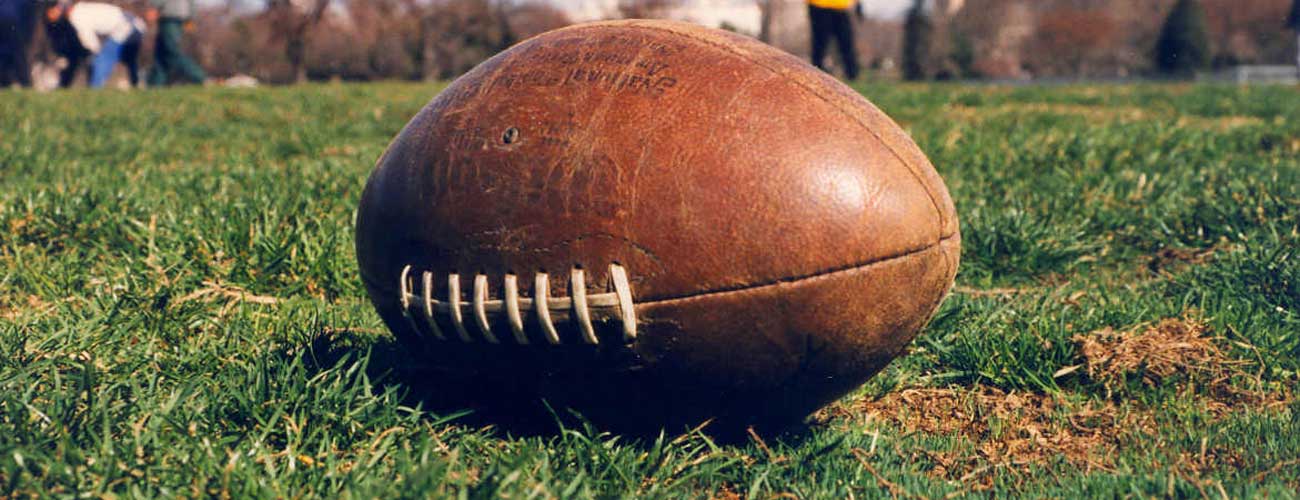Sign up for the daily CJR newsletter.
Sports Illustrated is expected to launch close to a dozen new podcasts over the next couple of months. While SI has had a somewhat patchy history with the form, staffers were asked earlier this spring to pitch podcast ideas “that would serve both the SI audience as well as help bring new people to SI,” says senior editor Richard Deitsch. “The overriding conceit for all of the SI podcasts is to be journalistically sound and smart.” One of the first of the new podcasts is Deitsch’s own “SI Media,” a takeoff of his sports media column (and active Twitter feed). The weekly show launched on May 10 and is produced by Bette Marston.
Deitsch, an adjunct professor at Columbia University’s Graduate School of Journalism, uses his media column to shed light on how the stories of sports are constructed, published, broadcast, and paid for. He’s written about FIFA’s television contracts, and detailed how ESPN began secretly producing its powerful video obituary to broadcaster Stuart Scott three months before Scott passed away from cancer. Deitsch also explored how two reporters who had been critical of boxer Floyd Mayweather’s history of domestic violence were banned from covering his big bout with Manny Pacquiao.
“SI Media”—to date, three episodes strong—is a variation on the form. It features in-depth interviews with sports journalists about the craft. The early lineup is broadcast-heavy, but diverse in both networks and beats: Verne Lundquist of CBS Sports, NBC Sports’ Rebecca Lowe, and, in the double-feature debut that already has more than 4,300 listens on Soundcloud, CNN’s Rachel Nichols and ESPN’s Adam Schefter. The gender parity of the guests is noticeable, and welcome. Conversations feel roomy enough to chase entertaining tangents, though Deitsch keeps them from veering too far away from the brass tacks. The show is weakest when the talk feels too much like what we’d find by just tuning directly into the guests’ broadcasts—this happens when they are left to extemporize for too long. A little more humor, too, would go a long way.
But the podcast’s potential is evident when Deitsch explores the decisions reporters make, uncovering how they move point-by-point through a story. Lowe, for example, digs into how she intensely prepares each week for NBC’s English Premier League coverage, and Nichols explains how she handled being banned from the Mayweather/Pacquiao match. Lundquist brings fascinating historic perspective with his five decades of calling sports. The result? Regular “SI Media” listeners will be empowered to get a handle on the workings of a massive multi-channeled industry—especially critical in an era when the unfathomably large budgets of top leagues lead to questions about who exactly is calling the shots in sports journalism.
In a CJR interview, conducted via email over Memorial Day weekend, Deitsch discussed why sports and radio are uniquely matched, how the podcast will be more than a forum for flattery of big personalities, and what a diverse SI audience gets out of such niche coverage. This conversation has been lightly edited.
Why did you decide to do the sports media podcast? What are you hoping to get out of this form/medium?
When I was a kid, I would fall asleep to the sounds of sports on the radio. It was always a source of comfort for me, almost like my own secret world under my bed (where I kept the radio). At one point I thought that’s where I’d end up in sports journalism. One of my first jobs out of college was co-hosting a sports talk show on a 50,000-watt radio station in Buffalo (WWKB-AM). Ultimately, my partner and I were replaced by G. Gordon Liddy and syndicated programming. I chalk that up to Nixon’s revenge for my liberal mother.
Audio, however you define it, has always fascinated me. I’ve hosted some SI podcasts in the past, including one that featured our writers and reporters discussing their stories, and a soccer-centric one. I enjoyed both of those. But for a long time, I’ve wanted to do a podcast on sports media, given that I cover that space and how much passion I have for the subject. I also love audio, and I love how I feel after listening to NPR’s “On The Media” podcast or the “BBC World Service”–I feel smarter. I don’t pretend to think my podcast can ever reach that quality, but I hope listeners come away from it having a better understanding of sports media than they did before they listened. I also hope they find it entertaining and something they want to invest in. If the podcast gains audience, I think there could come a time when one of the guests breaks news on the podcast, and that would be very cool.
How do you distinguish the podcast from your column? Do you see there being interplay between them?
I see it as a compliment. The guests on the podcast will be people that you either see or watch or read, or who work behind the scenes providing you sports coverage. I also like the idea of a different form of media (audio) within the confines of a column that is primarily the written word. I consider everything I do under the header of content and I hope this is additional quality content, just in a different form.
How do you intend to make the podcast something more than a promotional platform for “sports personalities”? What does your ideal interview look like?
Great question. Having a guest speak about their profession is by definition a platform for them to promote themselves. There’s no hiding that. So within the confines of that, it’s up to me to push the subjects to places that will be interesting to listeners. I have control over some important things, though. I get to choose the guests. I get to choose the ground rules (no advanced questions). I get to choose where the conversation goes. The way I’ve always approached sports media coverage is that I’m an advocate on behalf of the reader/viewer/listener who does not have access to the decision makers at sports media outlets.
The reviews for the first three podcasts have been really good, so I think listeners have recognized that I’m trying to work on behalf of them. I will be pitched, no doubt, by media organizations and agents, but I can promise listeners I won’t be choosing people who demand quid pro quos in exchange for airtime. The fact is, I’ll have enough guests to choose from without making any deals, and it’s important to note this podcast won’t only be personality driven. I’ll be having conversations with behind-the-scenes people in the sports media. As anyone who has read my work for SI The Mag or SI.com knows, there are few weeks when I don’t write about people behind the scenes. It’s one of my favorite parts of the job, talking to people who don’t often talk to media.
You noted in the first podcast that this is a pretty niche beat. How would you describe your responsibility to the SI audience, which is so wide and varied?
Sports media is very niche. This isn’t writing about the NFL or the NBA, but what’s interesting is that outlets have traditionally undervalued this kind of content. That’s why you saw sites such as Deadspin smartly come in and fill the void on sports media reporting. Think about it: ESPN personalities are more known than most third starters on an MLB team. People care about who they see deliver sports on television, who they hear debate sports on the radio, and who is writing stories they read. My responsibility to the SI audience is the same whether I’m writing sports media, women’s basketball, or the Olympics: Be accurate, be fair, be smart, be entertaining, and don’t be an asshole.
Can you talk about how this podcast fits into the overall picture at SI? How many does SI have, and is there a larger strategy at hand for them? What does it mean for an SI podcast to be successful?
SI has delved into the podcast space at different times with varying degrees of success. But this current launch has a chance to be permanent. There’s renewed energy around them and we have a great advocate in SI executive editor Jon Wertheim, who has been a guest on hundreds of podcasts over the years. The charter we were given a couple of months ago was to pitch podcast ideas that would serve both the SI audience as well as help bring new people to SI. The overriding conceit for all of the SI podcasts is to be journalistically sound and smart. The current number isn’t finalized but we should have close to a dozen new ones over the next couple of months. Obviously, success will be determined both by the numbers of listeners engaged, as well as the quality of the content. I have some very talented colleagues who can really excel in the audio medium. I think people are going to like what they hear and I hope they give us a shot.
Has America ever needed a media defender more than now? Help us by joining CJR today.







